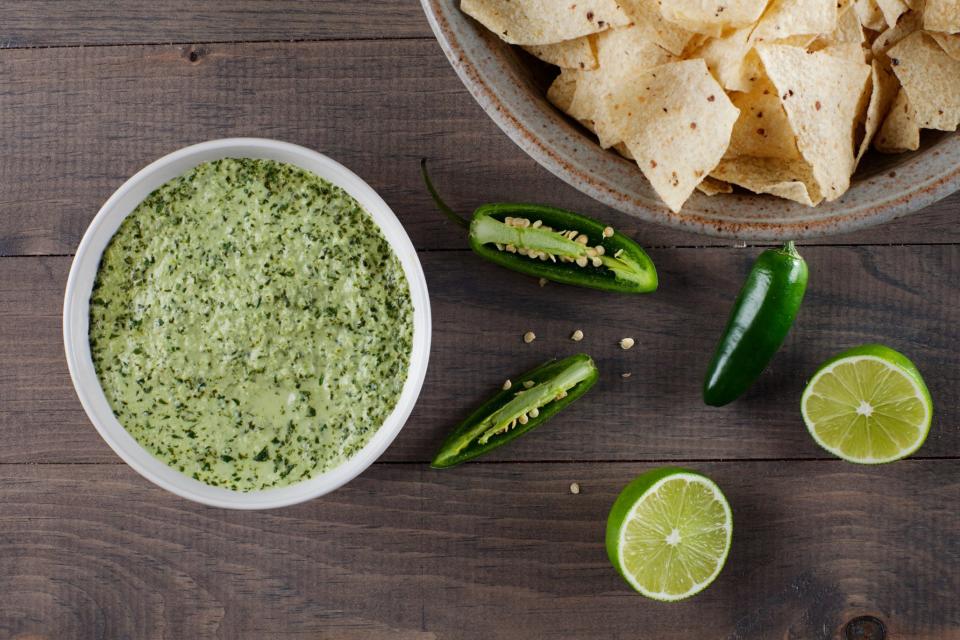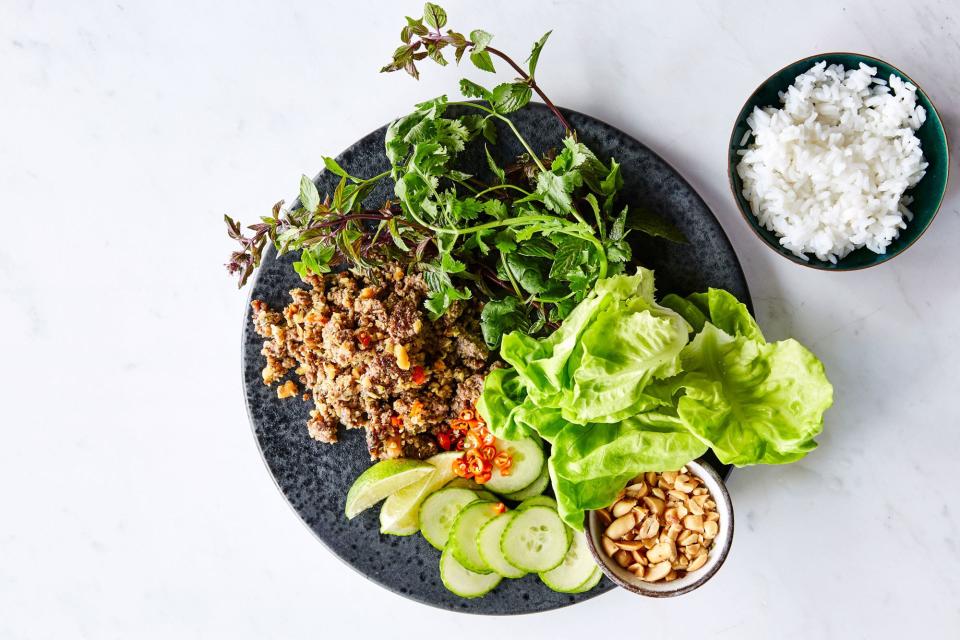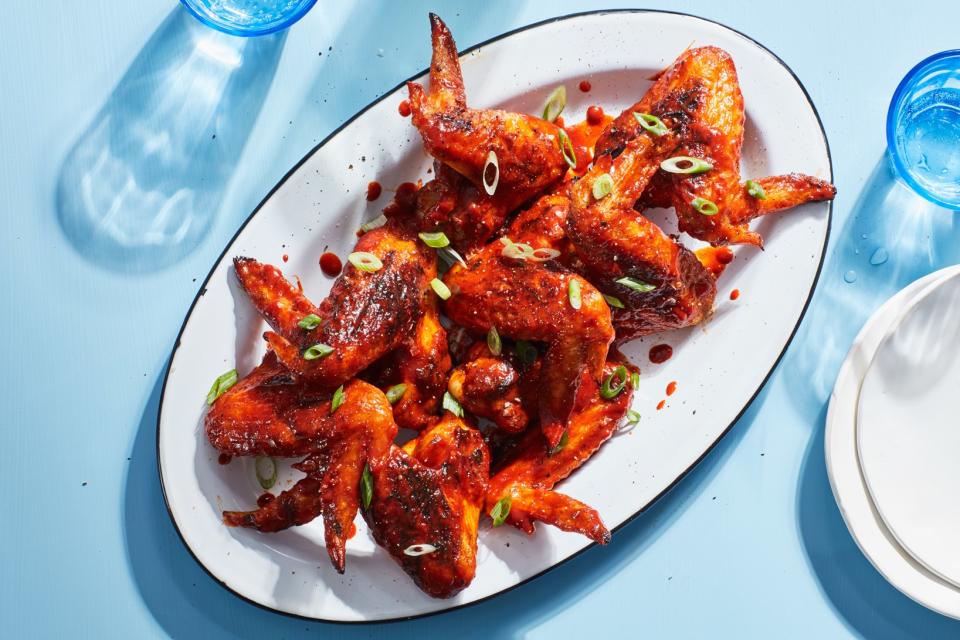How to Get Your Kids to Eat—and Maybe Even Like—Spicy Foods
Matthew Amster-Burton remembers the dinner that turned his daughter into a chile head. She was about nine months old, and Amster-Burton had inadvertently made his red-sauce enchiladas a tad too spicy...or so he thought.
Around age 10—but, says one expert, it's not something you can force.
"I gave her a bite, and another. She said, 'Muh,' which means more, and eventually, she ate two whole enchiladas," says Amster-Burton, who has chronicled his and his daughter's eating adventures in books, a blog, and a podcast.
Now 14, Iris is by all accounts a heat-loving foodie. Recently, the Seattle teen and her dad went to a Japanese curry restaurant where you choose your spice level on a 1-to-10 scale (3 is spicy, anything over 5 "is a stunt," says Amster-Burton). They happily slurped down their Level 2 and 3 bowls, respectively.
Of course there's more to this story—specifically Iris's preschool years, which we'll get to in a minute—so if you think turning a kid onto spicy foods is a breezy, one-and-done process, think again. But if you operate on the assumption that your child will automatically reject any and all heat, you both might be missing out.
Back off
Amster-Burton is a spice fiend himself, so of course he hoped his daughter would share his affinity, but he also didn't push, plead, or cajole. After all, he admits, there are foods that he still can't bring himself to like (egg salad; don't ask). "Food is one of the easiest places for kids to assert their autonomy. It's frustrating but it's also a good thing," he says.
In the face of resistance, he recalls advice from Molly Wizenberg, his friend, fellow author, and podcast co-host: "She says the key to feeding kids is to not let them see you care, meaning in the moment don't show how important it is to you specifically which bites of which things make it into their mouths." Your kid refuses a bite of your ma po tofu today? There's always tomorrow.
Ma-Po Tofu
Gourmet
Don't underestimate your kid
Iris's first bite and ensuing love of those spicy enchiladas might not have happened had Amster-Burton's wife, Laurie, not shrugged and said, "Let's try it." In some cultures, toddlers grow up eating spicy foods as a matter of course, and there are studies going back decades, most notably by University of Pennsylvania psychologist Paul Rozin, showing that frequent early exposure is among the factors that explain why a person eats spicy foods.
But personality also has something to do with it, as recent research by Penn State's John Hayes and Nadia Byrnes has shown. Some people like and want the burn more than others. Maybe your kid is one of them.

Creamy Jalapeño Sauce recipe image
text in callout
"What we think is that eating chili peppers is driven by personality in two ways. The first way is that if you have higher sensation-seeking as an innate trait, then you like spicy things more because you like the rush you get, and you eat more," says Hayes, director of the Sensory Evaluation Center at Penn State's Department of Food Science. "But sensitivity to reward and risk-taking also predict intake. This feeds into that machismo idea of people eating spicy food not because they actually like it more, but because they like the social status they get from it."
An additional (albeit unofficial) piece of evidence: Hayes' son. Jack, who is 8, likes and eats spicy food way more than his 12-year-old sister. "And he definitely has a, shall we say, sensation-seeking personality. He'll complain if something's too spicy, but then he'll go back for more, then down another glass of milk. He's also the kid you see climbing the 60-foot-tall tree," Hayes says.
Just wait, because a kid's tastes will change (and change again)
After those fiery enchiladas, Iris moved on to five-alarm chili, spicy Thai larb, noodles with Szechuan peppercorns—everything Amster-Burton dreamed of. "I was like, 'Wow, my kid will eat anything!' And that's called hubris," he says.
Because then Iris turned 2.
"She became a classic picky eater. I remember literally overnight, she went from eating a ton of Brussels sprouts as her entire dinner to the next night, not wanting one Brussels sprout. And I don't know if she's had Brussels sprouts since," he says.
Her pickiest phase—during which, her dad says, she would see a fleck of pepper on her chicken and demand that someone remove it or else she wouldn't eat it—lasted until she was 5. After that, her adventurous streak started reversing course, but coming back around to spicy foods in particular didn't happen for another year.
But as with her initial exposure, it was one dinner, her mom's cayenne-spiced hard-shell tacos, that brought her back. "Iris took a bite and said, 'This is spicy. I like it.' Within a week, we went out for our favorite spicy Thai food," Amster-Burton says.
Lamb Larb
Bon Appétit
Adjust accordingly
While in the no-spice toddler phase, Amster-Burton dialed down the heat, though not entirely. Depending on the dish, he'd make two versions, one spicy, one milder, for instance, by mixing a spoonful of his spicy tortilla soup base into his daughter's batch while he and Laurie ate the robust regular version. He'd also serve other foods she liked to accompany the wild-card dish.
Mix it up
"I find that spicy liquids like soup taste much spicier than a stir-fry that has an equivalent amount of peppers in it," says Amster-Burton. "So, just because your kid rejects one spicy thing doesn't mean the party's over necessarily."
Also, try playing up the tried-and-true flavor combo of sweet and spicy. It makes kid-friendly foods like chicken wings, peanut noodles, and bacon that much better.
Take the long view
Maybe your kid ends up like Iris. Maybe he has one bad experience with a chipotle and says never again. Either way, he'll survive—ideally, with you next to him at the table, not making a big deal out of any of it.
"For me the important thing wasn't for her to eat spicy foods, but that I wanted to share the foods that I love with Iris and not be sitting down to dinner and having us eat separate foods. I didn't want to feel disconnected from my kid," Amster-Burton says. "With spicy food or anything else, it's best to approach it as a fun adventure that's going to go great sometimes and not great other times, and they're going to turn out okay no matter what."





